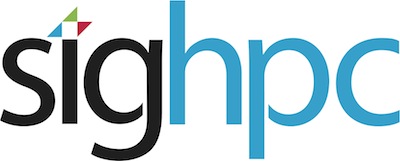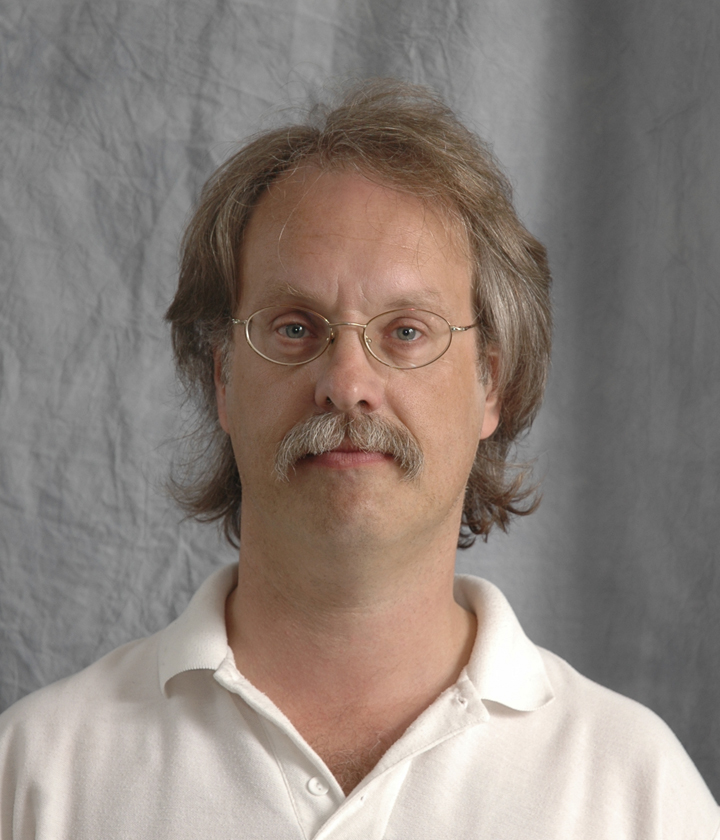WOLFHPC 2016
Sixth International Workshop on
Domain-Specific Languages and High-Level Frameworks for High Performance Computing
November 13, 2016
Half-day workshop in conjunction with
Salt Lake City, Utah, USA
Held in cooperation with ACM SIGHPC

| Home
| Advance Program
|
Workshop location: 251-F (Salt Palace Convention Center)
Workshop Proceedings @ IEEE
Please provide workshop feedback here
Advance Program
Session 1
Break: 10:00-10:30
Session 2:
| 10:30-11:00 |
Simon A. F. Lund, Mads R. B. Kristensen and Brian Vinter
"Automatic mapping of array operations to specific architectures"
[Talk][Online slides]
[Project website]
[Benchmark suite]
|
| 11:00-11:30 |
Navjot Kukreja, Mathias Louboutin, Felippe Vieira, Fabio Luporini, Michael Lange and Gerard Gorman
"Devito: automated fast finite difference computation"
[Talk]
|
| 11:30-12:00 |
Johannes Spazier, Steffen Christgau and Bettina Schnor
"Efficient parallelization of MATLAB stencil applications for multi-core clusters"
[Talk]
|
| 12:00-12:30 |
Charles Yount, Josh Tobin, Alexander Breuer and Alejandro Duran
"YASK--yet another stencil kernel: a framework for HPC stencil code-generation and tuning"
[Talk]
[Software]
|
| 12:30 |
Closing remarks
|
Keynote Talk
 Prof. Robert A. van de Geijn , The University of Texas at Austin
Prof. Robert A. van de Geijn , The University of Texas at Austin
Title: DSLs for DLA: Past the BLAS
Abstract:
The linear algebra software community was among the first to recognize
and embrace standard interfaces for high-performance computing, most
notably the Basic Linear Algebra Subprograms (BLAS). These early
forms of Domain Specific Languages (DSLs) supported portable high
performance and a certain level of readability. More recently, the
FLAME project has demonstrated how abstraction in notation can
translate into an elegant DSL for dense linear algebra computations
while facilitating systematic (and even mechanical) generation of
proven-correct, high-performance algorithms. After almost two decades
of foundational research that started as a pedagogical exercise, this
DSL now enables a new DLA software stack. Benefiting from hindsight,
we share insight.
Bio: Robert van de Geijn is professor of Computer Science and
core member of the Institute for Computational Engineering and
Sciences. He received his Ph.D. in Applied Mathematics from the
University of Maryland, College Park, in 1987.
Prof. van de Geijn's interests are in linear algebra,
high-performance computing, parallel computing, and formal derivation
of algorithms. He heads the FLAME project, a collaboration between UT
Austin, Universidad Jaume I (Spain), RWTH Aachen University (Germany),
and Carnegie Mellon University. This project pursues foundational
research in the field of linear algebra libraries and has led to the
development of the open-source BLAS-like Library Instantiation
Software (BLIS) framework and the libflame library. One of the
benefits of these libraries lies with their impact on the teaching of
numerical linear algebra, for which van de Geijn received the UT
President's Associates Teaching Excellence Award. He has published
several books and more than 100 refereed publications, and is
co-instructor of the Massive Open Online Courses (MOOCs) titled
"Linear Algebra - Foundations to Frontiers" (LAFF, offered by edX) and
"LAFF-On Programming for Correctness" (to be offered by edX in Spring
2017).

